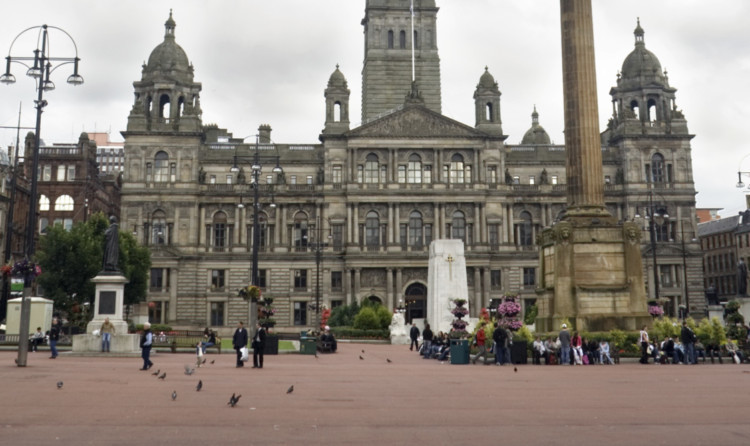
The UK’s constitution minister has admitted he has no contingency plans for the possibility of a Yes vote in the Scottish independence referendum.
Greg Clark’s admission comes just days after the Ministry of Defence was accused of arrogance when one of their ministers told Parliament the MoD had not considered the implications of independence.
Defence minister Lord Astor was harangued by all sides for stonewalling when asked what would happen to the nuclear deterrent at Faslane if there’s a Yes vote.
Former Royal Navy chief Lord West accused the Government of a dereliction of duty while Lord Forsyth queried why the Government was willing to set out its position on currency but not on an issue as crucial as Faslane.
The UK Government has been at pains to stress it is not preparing for a Yes vote but seasoned Westminster observers claim it is inconceivable that no contingency work has been carried out.
But Cabinet Office Minister for Cities and the Constitution, Greg Clark, seems unaware or unconcerned by the impact on his brief.
A Yes vote in September would trigger a whole range of tricky constitutional questions. For example, no one is sure what would happen to Scottish MPs elected in 2015 if Scotland were to leave the UK a year later.
Ed Miliband could become Prime Minister with a majority comprised entirely of his Scottish MPs, raising the prospect of him having to then step down or call another election if Scotland secedes.
Clark reckons this is not his problem.
He said: “Scotland, the devolution agenda there, is not my primary responsibility.”
But what about the knock-on effect for the UK constitution?
“The constitutional aspects are handled across government rather than by my particular post,” he added.
He’s responsible for issues such as House of Lords reform but he hasn’t looked at what would happen to Scottish peers, despite being Constitution Minister.
He countered: “You can read too much into a name.”
He’s much happier talking about the other part of his portfolio, cities. And here he is getting involved with Scotland, taking a key role in putting together a city deal for Glasgow.
City deals allow the Local Authority to keep a cut of the extra tax raised if they boost the local economy through investment.
The SNP administration in Holyrood has argued it won’t put in place the childcare offer in its Independence White Paper because, under the current arrangements, the extra money raised by more women in work paying tax would be claimed by the Treasury in London. City deals get round that. Several English cities, including Manchester, Liverpool, Plymouth and Ipswich have signed up.
Glasgow is now talking to the Treasury about agreeing a deal that is expected to include measures to allow the City Council to draw up its own welfare policies.
If more people return to work they’ll get to keep some of the extra income tax raised.
Clark said: “I have some considerable experience now with city deals in England so it seems reasonable to get involved in those discussions with Glasgow and there’s been an appetite for that.
“It’s still early days, but I know there is an expressed interest there.”
Newcastle already has a city deal but they want more muscle to level the playing field when competing against Scotland which is expected to take on more powers whatever the outcome of September’s independence vote.
A Parliamentary debate last week saw north east MPs from all parties complain that the Scots enjoy a competitive advantage, but Clark claims the situation in Scotland doesn’t affect his thinking.
He said: “It’s always been my view that there’s a lot of catching up from previous decades to do to reverse the flow of power from the English regions and cities to Westminster and Whitehall.
“I’ve been working at pace at that and have not been influenced particularly one way or another by the debate in Scotland.”
The SNP have accused the Coalition of ducking their responsibilities.
Westminster SNP leader Angus Robertson said: “It shows a lack of respect for the people of Scotland for Greg Clark to say this, and it really beggars belief that, with fewer than 200 days to go until the referendum, the UK Government claim they are not making any plans to deal with the outcome.
“It’s as if they are in denial.”

Enjoy the convenience of having The Sunday Post delivered as a digital ePaper straight to your smartphone, tablet or computer.
Subscribe for only £5.49 a month and enjoy all the benefits of the printed paper as a digital replica.
Subscribe